Clint Eastwood Has The #1 Movie On Streaming
Clint Eastwood is perhaps our greatest living actor turned director, but it is still weird that this movie is the number one most streamed.
This article is more than 2 years old
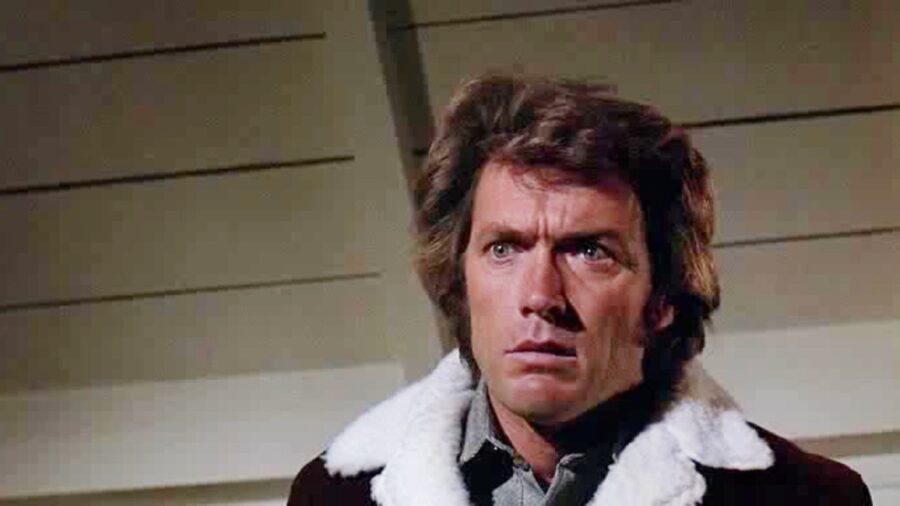
At some point in his career, Clint Eastwood changed from being one of America’s most preeminent action heroes to one of its most respected film auteurs. Unlike many fellow actors turned directors, he has never really stopped putting himself in front of the camera, though he has increasingly appeared only in his own films. It seems like 2021’s Cry Macho might be the 91-year-old filmmaker’s last movie, but people also thought the same for 2018’s The Mule. After all, there are not many nonagenarians out there producing, directing, and starring in films. In fact, there is pretty much just Clint Eastwood. But it is astonishing that even this late in his legendary career, he draws audiences in. The Mule is currently the single most-streamed movie on HBO Max, which is especially impressive for such a quiet film as this one.
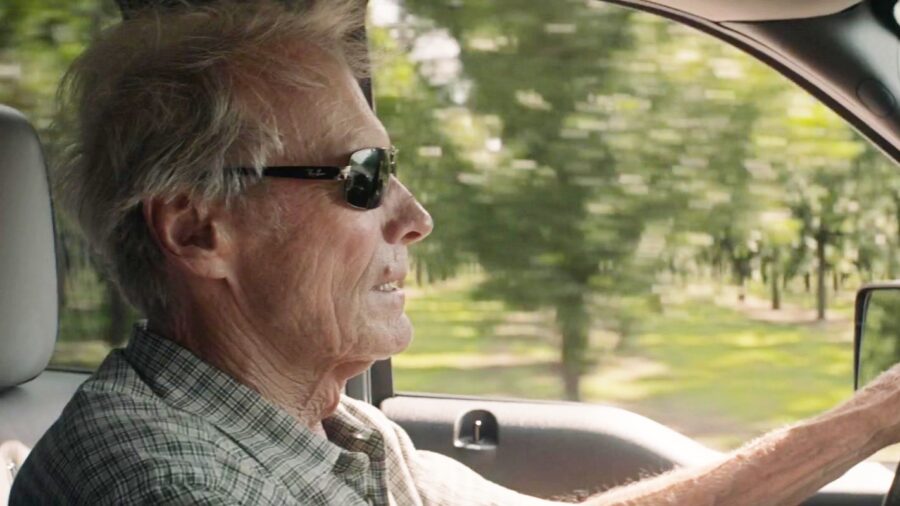
The Mule stars Clint Eastwood as Earl Stone, an elderly horticulturist who becomes a trusted and successful drug courier for a Mexican drug cartel, nearly by accident. The movie is inspired by a real person named Leo Sharp, a World War II veteran who became the world’s oldest and most prolific drug mule under the Sinaloa Drug Cartel (generally considered Mexico’s most powerful drug ring). The sheer oddity of a man like Leo Sharp, who won the Bronze Star Medal for fighting in the Italian Campaign in WWII and was a noted innovator in the crossbreeding of exotic flowers, becoming a trusted associate of one of the world’s most feared criminal organization is no doubt what brought Clint Eastwood to the project. Of course, the sheer unlikelihood of a man like Leo Sharp running drugs was what made him a perfect courier for a drug cartel in the first place.
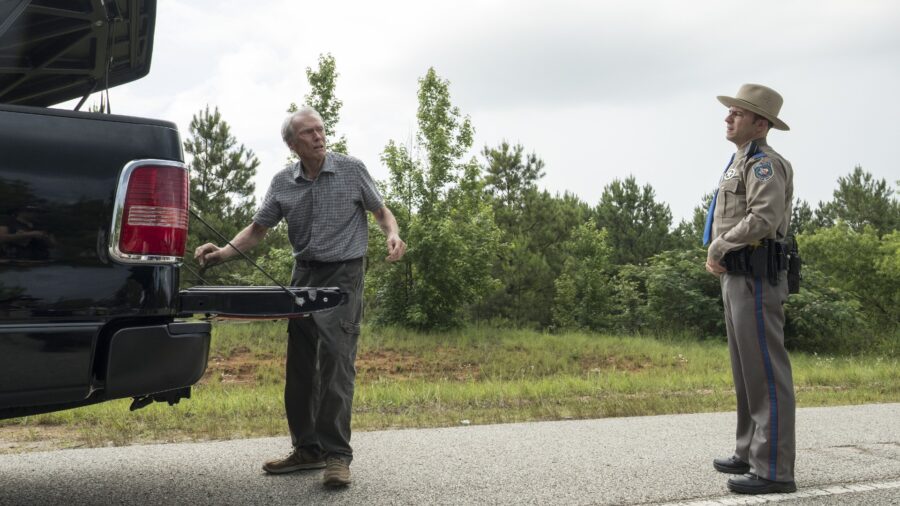
Never let it be said that Clint Eastwood is afraid to play with his own legend. In the first moments of The Mule, we see Eastwood, not as the hardbitten cop of Dirty Harry or Sergio Leone’s Man with No Name, but as an old man in a floppy sun hat puttering around with flowers. A few minutes later, we see him cheerfully greeting a Latino employee with a few casual racist remarks and then, while he strolls around a horticultural conference in a dandyish seersucker suit, growling at the uselessness of the Internet. For a few minutes, it seems like Clint Eastwood is going to be back up to his old Gran Turino tricks, in which a grizzled old man learns racism isn’t good.
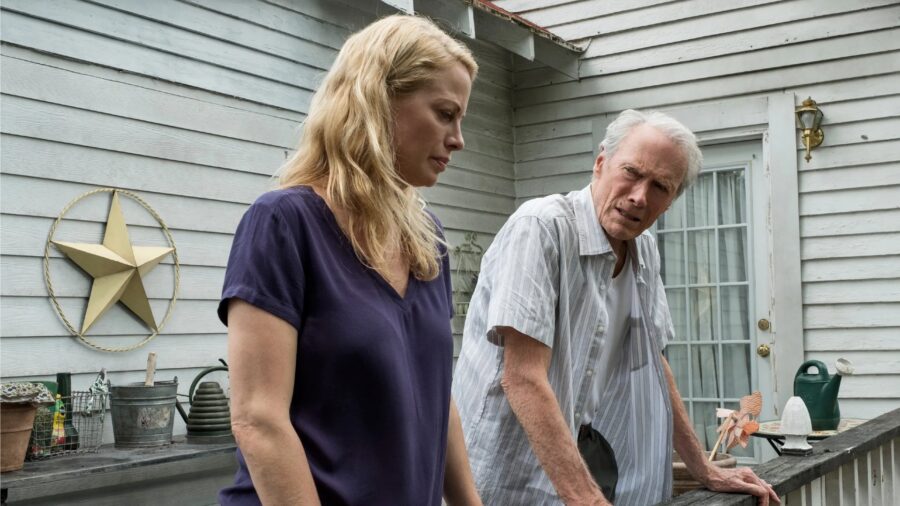
But while The Mule shares a lot of similarities to Clint Eastwood’s 2008 hit (down to the estrangement with his family and a portrayal of the warmth of POC communities), it also portrays him in a very different way. No doubt, some of that has to do with the real-life inspiration for the movie, but Eastwood is simply playing a different character here. While his family may view him as a jerk for consistently missing life events and prioritizing his work-life over his home life, he is a strangely gentle and naive figure in The Mule. That said, it does still stick to Clint Eastwood’s apparent latter-day belief that everyone finds an elderly white man throwing around outdated racial terms and homophobic slang to be kind of charming.
Clint Eastwood’s Earl Stone takes on the task of smuggling hundreds of kilos of drugs for an unnamed drug cartel (perhaps Warner Bros was concerned with besmirching the reputation of Sinaloa) after being approached by a friend of a friend of his daughter. A combination of financial desperation and loneliness seems to compel him to keep going, especially after the money helps win back the trust of his family and the trust of the cartel keeps the money flowing. The Mule also portrays the various members of the cartel as oddly warm and human, who treat Clint Eastwood with a combination of amusement and eventual fondness. Of course, they do murder a few people brutally, but still.
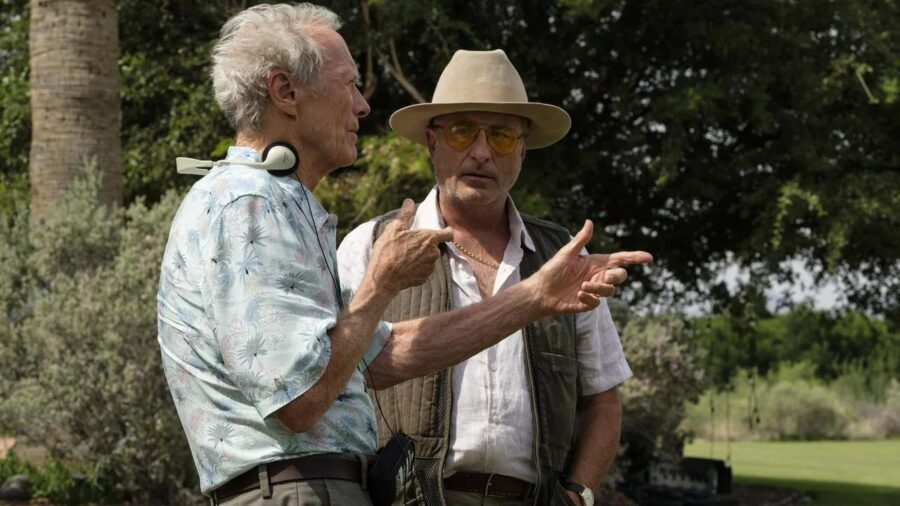
In real life, Leo Sharp was eventually arrested and sentenced to three years in prison; during the trial, he offered to pay restitution by growing papayas for the US government. In the movie, Clint Eastwood returns to the floral arts in prison. The film is strangely without judgment for most of its characters, even portraying the Federal agents pursuing Eastwood (without knowing that they are looking for an elderly white man) played by Bradley Cooper and Michael Pena as more bemused than driven by their tasks. The film was a comparatively big hit for Warner Bros, drawing in $174 million at the box office (although that doesn’t seem to engender any loyalty from incoming executives) and well-reviewed by critics. It is one of Clint Eastwood’s odder, warmer movies from this period of his long career, which might be why so many are watching it now.












